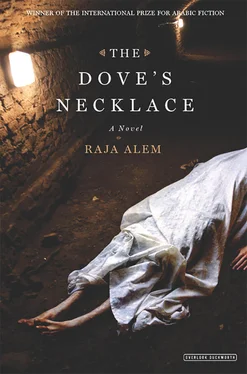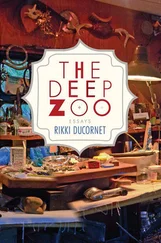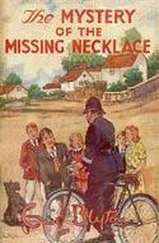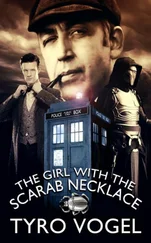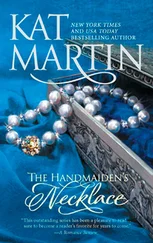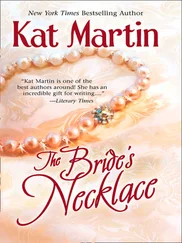It was almost midnight, but detective Nasser al-Qahtani was still at his desk, going over stacks of interrogation transcripts and back down the dead-end where his investigation had stalled. Each day brought dozens of cases like this one — sealed by murder, or torn open by rape — that would eventually go cold, pinned on SUSPECT UNIDENTIFIED. But the Lane of Many Heads case was different: this many-headed alley knew exactly who the murder victim was. It was just daring him to figure it out, thumbing its nose at his storied career as a detective. He could’ve ignored the Lane of Many Heads case. He could’ve let the archives swallow it up along with hundreds of pages of Yusuf’s diary and all of Aisha the schoolteacher’s emails, but something in those stacks of paper — something hidden — was taunting him. He couldn’t even tell the difference any more between what was real and what was a delusion brought on by the high blood sugar and cholesterol he’d developed after all those sleepless nights and fast-food meals eaten hurriedly at his desk.
Nasser put off looking into the folder labeled “Emails from Aisha,” which his men had downloaded and printed out from a folder named “The One” on the missing teacher’s computer. The report stated that they “were sent from one party to an unidentified second party over the Internet.” What dormant cell lurked in those emails? Who was going to rouse it? And to what explosive end?
August 30, 2001
A Shroud for Azza
If the earth were a bolt of fabric, how many meters would you need to wrap yourself up warm? What if there were a child or two, and Azza, to wrap up with you? I already know what size the shroud has to be: it’s a cotton weave, white, eight to ten meters long, with strips to cover our genitalia, and drapes over our faces like a head-cloth in case our mouths fall open. “Mouths do nothing but bring shame. They’re never sated, not even in death.” To me, a shroud represents the ultimate act of shedding whatever the world might try to do to us. Do I have your permission to dream of making a home for you inside it, somewhere where we can have a child?
I look around the cardboard room on your father Sheikh Muzahim’s roof, where my mother and I live. He lets us have it out of the kindness of his heart. I am twenty-eight years old. I’ve got a fiftieth of a square meter for each year of my life: fifty-six hundred square centimeters for me, and about twice that for my mother the tea lady. That includes everything: the bedroom, the roof, and the bathroom in the far corner. And yet we don’t pity ourselves either. We live on the gone-off leftovers from Sheikh Muzahim’s storeroom and whatever the tea money brings in, touching the sky like angels.
I sit at my mother’s tea stall in the midst of her samovars and glistening teacups, which distort my face, reflecting it back at me mixed with the faces of angels. It’s a little game I play to make myself feel better. I’m obsessed with it.
I’m going to write about veils as I watch your apparition reflected in my mother’s samovar. Do you mind if I write about death? You see, I got my start by corresponding with my father, who was veiled by death at the very moment I announced my existence in my mother’s belly. I corresponded with him so that I could reach you, Azza, so that I could pierce the even greater veil that separates us and falls over me like the night.
I try to write with the simplicity of the dress I remember you wearing as a young teenager: black, with slits at the chest and the wrists.
Don’t make fun of the way I write.
When a man sits down to write, to jostle the dead so they can’t enjoy their eternal rest, he’s choosing to write as a substitute for living the life he dreamed he would: a world in which his sons could live contentedly, assured of the knowledge that their father had fought and been broken, but that he’d done it all for them. That he was a hero and that his children were the only medals he had to show for it. The most painful, most deceitful words a man will ever write are the words he writes to a woman so that she will give him something she’s never given to any man before him and will never give to any man after him. Imagine the hopelessness of a man who writes for a living and who, after writing books upon books, discovers in his writerly solitude that he’s gone down a dead-end of illiteracy; that he writes but isn’t read, that the volumes of his life are nothing more than moth fodder.
We write to give life and to take it away (that’s how you should see me).
I realize I’m not writing to you, but to whomever inevitably reads my journal after you’re gone. They will, of course, try to read between the lines; so, to those who will wear themselves out trying to deduce who I am, let me save you the trouble: I am the writer and historian Yusuf, half-man, half-robot, twenty-eight years old. For some sin or transgression, I was born deformed in the 1980s and have lived on into the twenty-first century.
But I will record my secret here: I swear to you, reader, that I was born, healthier and more handsome, in the fifties and grew up in the sixties. Azza met me back then. She fell in love with me, and we sailed through time together.
Don’t ask whether the things you’re reading are true.
Just tell yourself you’re reading about a freak who wakes up in the twenty-first century to unfurl and stretch like the monsters looming before us, all these limited and unlimited liability corporations.
My nom de plume is Yusuf ibn Anaq, the giant who plucks fish out of the bottom of the ocean and grills them on the eye of the sun. It takes days for the caravans I send from my head to reach my feet where they discover that the nipping flies they set out to rid me of are actually wolves. I’m the one who survived Noah’s flood, which didn’t even come up to my waist. I’m the one who traveled through time and met the Israelites in the desert, who picked up a boulder the size of a mountain, which would have crushed them all had Moses not begged God to protect them. The boulder was instantly hollowed out and fell like a collar around my neck. The column I write in Umm al-Qura newspaper is a salute to my namesake, Awaj ibn Anaq.
Detective Nasser had the feeling that Yusuf was writing all this to make sure he’d be involved. He was writing to be read. He wasn’t writing like someone trying to hide a secret; he wanted to defy the veil. He wanted to look the reader straight in the eye and say the things that people usually tried to hide. Nasser was annoyed. For a second he thought about stopping — so as to deny this gloating exhibitionist an audience — but the detective in him told him he could do it: he was capable of combing through even the most innocent-sounding testimonies to track down the criminal hidden within. He carried on; the challenge he’d accepted weighed on him greatly.
September 20, 2004
A Window for Azza
Dear Azza,
When I get close to home, coming down the narrow lane, the window of your bathroom becomes the direction of my prayers. I look for the signal we’ve agreed on: a scrap of red cloth tied around the iron bars of the window informs me of your father Sheikh Muzahim’s movements.
I see it from far off. A red rag, shouting: “Danger! Do not approach.”
I slip my “window” under your door and go on up to my room, which is directly above yours. I step heavily on the floor, wanting to impress myself upon your head and your body, to inhabit you and the loneliness that surrounds you.
I should have stopped writing these windows to you. We’re not kids like we were back when we started playing this game of life. Back then my secrets were silly. I still remember what I wrote to you when I was in fourth grade: marriage?
Читать дальше
